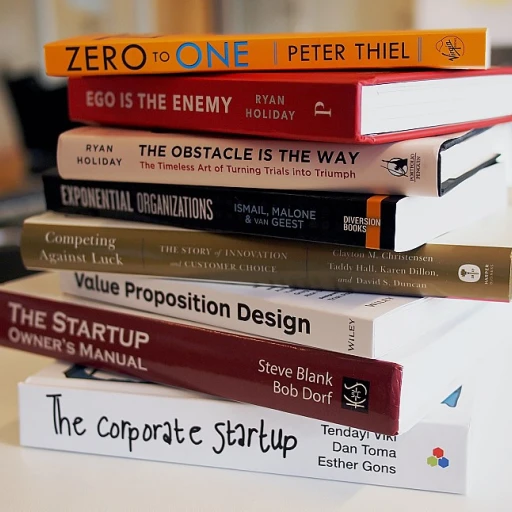The Contours of Power: Understanding International Relations Dynamics
Mapping the International Chessboard: States and Their Moves
In the complex game of international relations, the movements of states are like those of chess pieces, each maneuver conducted with strategic forethought and an eye for the long game. Emerging market strategies are reshaping the global economic landscape, altering power dynamics as they unfold. Nations are increasingly assessed not just by their military might, but by their economic resilience and diplomatic alliances.
The Power Matrix: Political Science Meets International Affairs
Political scientists have long analyzed international affairs as a stage where diverse states and non-state actors interact. International law, human rights, and global politics converge, defining how states coexist and confront each other. Studies harness detailed statistical models to predict outcomes in international relations, offering policymakers a clearer picture of future trends.
International Dynamics and Influence: Case Studies in Power
Case studies from geopolitical flashpoints, such as the tension between the United States and Iran or the strategic patience of China in East Asia, offer real-world examples of how international relations theories apply to contemporary issues. They highlight the capacity of nations to exert influence and project power across different spheres—economic, political, and military.
Shifting Paradigms: Political Economy and International Synthesis
Insights into the political economy emphasize that financial might underpins modern international relations. Whether it is trade wars or sanctions, economic strategies are a primary tool for states to achieve foreign policy objectives. The synthesis of political insight and economic strategy forms a critical part of understanding global power structures.
Understanding Statecraft: Degrees of Influence and International Relations
From the Cold War to the new multipolar world, the history of international relations is rich with lessons on statecraft. Universities offer degrees in international studies and political science, preparing students to approach global issues from an informed perspective and develop policies that consider multiple levels of analysis—from local to international challenges.
Global Empathy: Human Rights and State Priorities
Meanwhile, human rights emerge as a powerful narrative in the conduct of international relations. States must balance national interests with the global outcry for human rights protections, leading to a complex interplay where ethics can both empower and hinder foreign engagements.
A New Era of International Relations
As we move forward, the interconnection between academia and the battlefield of international politics becomes more profound. The United States, the United Nations, and international law all play defining roles in shaping the rules of engagement. What is clear is that the understanding of international relations is paramount for strategic advances on this global chessboard, and it's a game that continues to evolve with every move.
Global Alliances and Corporate Diplomacy: Strategic Business Engagement
The New Geopolitical Chess Game
In the realm of international relations, global alliances form the backbone of a strategic approach to corporate diplomacy. Firms that adeptly maneuver through this landscape understand that forging robust alliances can be as crucial as developing cutting-edge products. Delving into the political science of relationships, companies wield soft power to influence and persuade on the global stage. Over 50% of CEOs in a recent PwC survey highlighted the importance of geopolitical stability for business growth, signaling a sharp increase from less than a third just five years prior.
Corporate Diplomacy: The Bridge between Sectors
Corporate diplomacy extends beyond mere lobbying; it's an art that involves navigating intricate webs of international politics, culture, and economics. Experts like Amb. Charles Ries, vice president, International at the Rand Corporation, opine that corporate diplomacy accomplishes what traditional statecraft does not: it engenders trust, fosters long-term relationships, and strengthens corporate and economic ties. Ries, known for his extensive work on transatlantic relations, illustrates the changing paradigm where 'business as usual' no longer applies.
Examples and Studies Illustrating Strategic Engagement
Case in point is how companies like Apple and Google engage in 'Digital Statecraft,' where their global policy and security frameworks influence international marketplaces and regulatory environments. A Harvard Business Review report highlighted such cases as exemplars of foreign policy executed through the boardroom. This synergy between international affairs and corporate strategy underscores the complex interplay of soft power, with businesses acting as non-state influencers.
Mindful Partnerships in an Era of Political Realignment
The dissolution of traditional alliances and the emergence of new power blocs emphasize the importance of political astuteness. For instance, amidst Brexit negotiations, several multinational corporations had to reassess their alliance strategies, keeping close tabs on shifting trade agreements and regulations. Degrees in international relations and programs focusing on political science at institutions like American University in Washington, D.C., integrate case studies into their curriculum, preparing students to understand and engage with these complex shifts.
Traversing Through Trade Wars and Political Tumults
Rising tensions between the U.S. and China have brought trade wars to the forefront, affecting global supply chains and corporate strategies. Adept companies navigate these choppy waters by incorporating insights from international political economy and international law into their strategic planning. Recognizing patterns and historical precedents, like those found during the Cold War, helps firms anticipate and mitigate risks. The University of East Asia's recent research into Sino-American economic relations offers comprehensive data supporting the need for strategic agility in times of political volatility.
Integrating International Relations into Corporate Core
An agile approach to corporate diplomacy recognizes the intrinsic value of integrating international relations expertise within the executive team. For example, practitioners with a Master of International Service (MIS) degree often bring a nuanced understanding of geopolitical dynamics to the boardroom, informing decisions on foreign investments and human rights considerations. Furthermore, reports by eminent institutions such as the Woodrow Wilson International Center for Scholars serve as important reference points, contextualizing the interdependence of global policies and business outcomes.
Collaborations with schools of international affairs offer businesses leading-edge foresight, guiding through the complexities of the international system. In an increasingly multipolar world, corporate strategy is becoming inseparable from international strategy, making it essential for corporations to remain vigilant and proactive, much like a seasoned player in a game of chess.
Unlocking Growth in Emerging MarketsEconomic Tides: Gauging International Trade and Relations
Evaluating International Trade Landscapes
In traversing the shifting sands of global commerce, the economic tides of international trade stand as a critical metric for modern businesses. It's a realm where the winds of political change, supply-chain resilience, and tariff tussles can stir up waves that impact an enterprise’s bottom line. Stakeholders must remain vigilant to the rhythms of international relations, shaping strategies to harness the momentum of these forces.
Global Market Fluctuations and Trade Agreements
Understanding the ebbs and flows of international markets demands a keen eye on global trends. Data mean everything; for instance, the World Trade Organization reports that world merchandise trade volume is expected to grow by 4.7% in 2021. Additionally, regional trade agreements, like the European Union's single market, illustrate how political unity transforms into economic strength, signposting opportunities for multinational corporations.
The Intricacy of Supply Chains and Economic Dependencies
Supply chain disruptions have punctuated recent headlines, yet they have also provided learning opportunities. The tension between specialization and redundancy in supply chain design requires a balanced approach. A study by McKinsey & Company unveiled that companies sourcing from a diverse supplier base can mitigate risks of disruption by up to 30%. Engaging with these dynamics outlines a playbook for corporate responsiveness.
Political Instability and Its Economic Ripple Effects
Political tremors can send shockwaves through international trade. A poignant example is the U.S-China trade war, where corporations have had to navigate tariff minefields. Real-time adjustments to such geopolitical shifts are quintessential. For comprehensive analysis on structuring business strategies amidst political landscapes, the Art of Experimentation lends pivotal insights.
Customs, Cultures, and Compliance: Trade Beyond Numbers
Trade isn't simply about statistics; it's about comprehending the customs and cultures that govern the business environment. The successful negotiation of cultural landscapes hinges on respect and understanding, underscoring the importance of soft skills in the arena of hard numbers.
Emerging Markets and Their Potent Potential
The allure of emerging markets remains high with their potent potential for growth. Harboring over 85% of the world’s population, these economies represent a robust consumer base. India alone, as part of the BRICS consortium, is projected to outpace the UK and France to become the world’s 5th largest economy. Integrating the nuanced strategies required to tap into emerging markets is expertly explored in the Growth Trajectory.
The Human Rights Factor: Balancing Ethics and Interests
Ethical Stakes Rising in the Corporate World
In the bustle of global business happenings, the ethical dimension, specifically human rights, holds a prominent stake. This isn't mere idealism—it's hard-nosed business sense. Companies with a keen eye on human rights issues not only forge a stronger bond with their consumer base but also navigate the pitfalls of international criticism with greater agility.
A Case of Rights and Reputations
The international community has witnessed a steady upswing in corporate responsibility expectations. A striking example lies in the technology sector, where supply chains are scrutinized for labor conditions. Revelations of child labor or forced labor in sourcing materials, as reported by reputable organizations like the United Nations, can lead to swift consumer backlash and affect the stock market perception of implicated firms.
Rigorous Compliance, An Inescapable Imperative
It's undeniable: rigorous adherence to international human rights laws not only safeguards against legal repercussions but serves as a bedrock for trust among stakeholders. The Harvard Law School Forum on Corporate Governance emphasizes the rise in 'ESG' investing—where environmental, social, and governance factors play pivotal roles in investment decisions. Modern businesses are thus tasked to not simply keep tabs on, but to actively prioritize human rights within their operations and partnerships.
Strategic Alliances Toward Shared Values
On the international chessboard, forging partnerships founded on shared ethical values can be a strategic maneuver. Companies that collaborate with bodies like the International Labour Organization or engage in the UN Global Compact tend to outshine their competitors in not just ethical standing but often in financial performance as well, showcasing the intertwined nature of profits and principles.
Real-World Success and Sobriety
Notable case studies where ethics and business strategies align are telling. Take for instance the commendable strategies of clothing brands that have taken transparent steps to ensure their supply chains are devoid of any form of modern slavery. These are not only celebrated in humanitarian circles but increasingly by investors seeking long-term, sustainable growth opportunities. Conversely, companies brushed with the tars of ethical controversies may see their market position tarnished, with the recent spotlight on electronics brands over labor controversies in East Asia serving as a sobering reminder.
Looking Forward: Algorithms of Ethics in Strategy
As global dynamics shift and the world becomes smack on more interconnected, the algorithms that steer corporate strategies are increasingly being written to include ethical considerations. Balancing ethics with interests is an art—and businesses are finding it an inextricable part of their strategic planning. It's beyond philanthropy; it's an integral component of contemporary corporate wisdom that anticipates and mitigates potential risks associated with global market engagement.
Cyber-Security in the International Arena: Corporate Strategies for Protection
Guarding Digital Fortresses in Global Politics
As the tendrils of technology weave deeper into the fabric of global relations, the stakes for cyber-security have reached unprecedented heights. Companies navigating the waters of international relations often find their digital assets under threat from a myriad of cyber risks. Notably, a staggering 43% of cyber-attacks target small businesses, emphasizing the vulnerability across all tiers of corporate structures, as reported by cybersecurity firm Symantec.
The Convergence of Corporate Strategy and National Security
Chief Information Security Officers (CISOs) are no longer the unsung heroes of the tech realm, but key players in the tapestry of international relations. With states often implicated in or accused of cyber espionage, the corporate strategy for cyber-security must align with a broader understanding of international political dynamics. For instance, the US Department of Homeland Security actively collaborates with the private sector to fortify critical infrastructure against state-sponsored cyber threats.
Elevating Cyber-Resilience Through Learning and Adaptation
Building resilience against cyber threats is an evolving art, intertwined with the science of innovative technologies. Studies by cybersecurity experts like Bruce Schneier suggest that a blend of strong security protocols, continuous monitoring, and rapid response plans are vital components of a robust cyber-defense strategy. Graduate programs focusing on cybersecurity are incubating the next generation of experts who can navigate this complex domain, tapping into interdisciplinary knowledge from international relations, law, and computer science.
Real-World Confrontations in Virtual Spaces
The tales of significant cyber-attacks offer rich learning ground. Consider the NotPetya attack in 2017: a vivid example of how geopolitical tensions can spill over into the corporate sector, causing estimated damages over $10 billion worldwide, according to the White House. The lines between acts of war and cybercrime blur, creating a labyrinthine legal and political challenge, much as reflected in the intensifying discussions at international forums like the United Nations.
Enshrouding Data in Layers of Security
Data privacy has emerged as a frontline issue in international relations, with regulations like the GDPR in Europe setting a global precedent. Companies are now expected to fortify their data practices with an armor of compliance and best practices, setting up data protection as a strategic asset in international trade and diplomacy.
Collaboration: The Keystone of Cyber-Security Strategy
The sage advice of pooling knowledge and resources has never been more pertinent than in the field of cyber-security. Multi-stakeholder initiatives and public-private partnerships are essential in sharing threat intelligence and best practices. This spirit of cooperation was evidenced when over 50 countries signed on to the Paris Call for Trust and Security in Cyberspace, aspiring to create a safer digital environment.
Charting the Course for Future Cyber-Diplomacy
While the terrain of international relations is in constant flux, the certitude of cyber-space as a battlefield for corporate and national interests cements the need for elevated cyber-diplomacy. Understanding the implications of digital sovereignty, the power dynamics of the international system, and the potent capabilities of emerging technologies will dictate the terms of engagement in cyberspace for decades to come.
From Theory to Practice: The Role of Academia in Shaping Business Strategy
Academic Influence in Strategic Business Decisions
In the bustling corridors of global business, universities and scholarly work often stand as ivory towers, seemingly detached from corporate hustle. Yet, in a twist that weaves intellect with industry, academic research and theories in international relations beget strategic paradigms that shape the way businesses maneuver in a globalized economy. Lean in and consider the profound way academia informs the chessboard of international commerce and diplomacy.
Nurturing the Nexus of Theory and Action
At the very heart of businesses that thrive in the transnational scene are leaders versed in the rich tapestry of international studies, political science, and global politics. These disciplines offer frameworks—meticulously crafted through years of study and research—that dissect the anatomy of power, states, and international systems. Empirical data and case studies from esteemed scholars provide corporate strategists with the intellectual scaffolding to predict shifts in international political economy and preemptively adjust their sails.
Deploying Insights from Academic Journals
A closer look reveals a treasure trove of strategic intel concealed within the pages of erudite journals and the annals of political studies. Statistics such as trade volume variances, the impact of sanctions, or the rise of emerging markets are not merely numbers in a ledger. These are the result of painstaking methodologies that offer businesses quantitative footholds for their own market analyses and foreign policy planning.
Case in Point: The Economic Forecasting Model
Consider the academic spheres that scrutinize historical trends and foreign affairs to provide predictive models. When academia elucidates the cyclical nature of the global economy or the potential fallout from geopolitical tensions, businesses listen—and act. Take the United Nations development programs as a heuristic model; they are not simply altruistic endeavors, but also serve as proxies for identifying nascent markets and gauging future political stability.
The Crucible of International Law in Business Strategy
Moreover, where else but from halls of legal academia do the norms and nuances of international law emerge? This scholarly work equips businesses with the foresight to navigate complex regulatory landscapes, making the machinations of international relations a cornerstone of corporate legal strategies, particularly when it comes to safeguarding intellectual property or negotiating trade agreements.
Equipping Leaders with Global Perspective
What's more, degree programs and specialized international relations majors at top universities craft the geopolitical acumen of future leaders. Progressive curriculum that spans from the United Nations charter to the nuances of the international political economy sets the stage for cultivating executives with global outlooks, capable of steering their enterprises through the unpredictable waters of international trade and diplomacy.
Forging Thought Leaders and Allies in Education
Educational institutions aren't just think tanks; they are veritable allies in business strategy. Engaging with colleges through partnering on research initiatives or sponsoring think tanks strengthens the knowledge base while bridging the divide between academic theory and market practice. Forward-thinking companies reap the benefits by staying one step ahead in the international playbook, with insights tailored for the geopolitical challenges of tomorrow.
Wrapping Up: The Synergy of Academia and Strategy
In the end, the symbiotic relationship between academic insight and business acumen cannot be overstated. While the application of international relations studies may manifest quietly behind closed boardroom doors, the strategic advantages cultivated through academic partnership are loudly pronounced in a company's international success stories. So, as corporations engage in the global theater, it pays to keep an ear to the ground and an eye on the ivory towers where global strategy quietly evolves.
Navigating Thawing Ice: International Relations and Climate Change Policies
The Environmental Edict: Steering Through Climate Policy
As corporations maneuver within the international system, awareness and adaptation to global climate policies have become paramount. The intricate web woven by climate change does not acknowledge national borders; it's an omnipresent tapestry impacting every facet of international relations. Nations, multinational corporations, and NGOs alike must navigate the delicate balance of environmental stewardship and economic interests.
Corporate Role in Shaping Climate Policy
Businesses once seen merely as profit-driven entities are now pivotal players in the war against global warming. Key figures with industry clout, like Elon Musk and the late Wangari Maathai, have revolutionized the way we think of corporate influence on climate action. Their work sheds light on the significant role corporations can play in international environmental policy discussions. Companies are investing in green technologies and redefining corporate social responsibility, setting standards that ripple through political science and inform global politics.
Sifting Through the Data: International Climate Accords
Climate accords such as the Paris Agreement render a new spectrum of data crucial to corporate strategy. Reports indicate that up to 90% of the commitments made in the Paris Agreement hinge on business sector contributions. This intersects with political economy, affecting how industries operate and global markets adjust. Analyses of such agreements transform from international studies into actionable blueprints for corporate maneuvering.
Caught in the Crosscurrents: Economic Renewal and Climate Activism
There's a palpable tension between economic renewal and the burgeoning demands of environmental activism. For instance, industries reliant on fossil fuels face mounting pressure to pivot towards renewable energy sources. This is more than a mere policy shift; it's an evolution of the political economy colored by the human rights narrative of environmental integrity. It leads to a redefinition of 'power' in both the physical and international relations sense.
Lessons from the Arctic: A Thawing Frontier
As polar ice caps retreat, nations and corporations watch the Arctic with both concern and strategic interest. Here, international law becomes a tool for advancing claims or protecting the environment, while political science grapples with the implications of newfound shipping lanes and untapped resources. The Arctic presents a live case study where international security, resource diplomacy, and environmental ethics convene on a field of melting ice.
Weathering the Storm: Business Continuity Amid Environmental Challenges
In an era where climate-related events can disrupt supply chains and global operations, business strategy must integrate resilience. Case studies have shown that proactive adaptation leads to competitive advantage. German auto manufacturers, for instance, have adapted their operations with foresight into environmental regulations, influencing both market trends and international relations, thereby securing their global standing.
Charting a Sustainable Course: The Vanguard of Green Policies
Schools of international affairs and political science departments worldwide are the crucibles forming the next cadre of leaders. These institutions are not just studying international relations but are also shaping them by championing sustainability. Courses on international environmental policy are now as common as those on foreign policy or international security, signifying a shift in educational paradigms.
From Rhetoric to Reality: The Business of Building a Greener Tomorrow
The pivot towards sustainable strategies is no longer optional but a necessity compelled by global agreements, regulatory frameworks, and consumer expectations. By aligning with international law and embracing the tenets of the Paris Agreement, businesses not only comply but also contribute to the redefinition of international relations with each green initiative. Navigating the complexities of climate policy presents a unique opportunity for corporations to lead in a world that profoundly values environmental guardianship alongside economic vitality.
Case Spotlight: Success and Failure in International Corporate Ventures
Examining High-Stakes Corporate Chess Moves
Within the intricate web of international commerce, ventures cross into territories where cultural, political, and economic factors heavily influence outcomes. Pivoting from the more theoretical frameworks discussed earlier, real-world examples shed light on the stark realities faced by corporations on the global stage. The dichotomy between success and failure often hinges on a firm’s ability to align with international dynamics and navigate the complex interplay of global forces.
Learning from Corporate Giants: A Deeper Look at International Ventures
Take, for instance, the recent acquisition attempts by technology behemoths in foreign markets. Some have stumbled due to misreading the political atmosphere, while others have thrived by intertwining their corporate strategies with local norms. A multinational approach, integrating respect for human rights and understanding economic currents, fortified their position across borders. Perspectives offered by global political science experts further solidify that corporations attuned to the subtleties of international relations tend to outmaneuver those who are not.
Dissecting the Anatomy of a Failed Venture
Failures in international corporate attempts can often be traced to a disregard for the fine-tuned balance between exerting corporate power and understanding international sensitivities. A recent study revealed that over-exertion of economic clout without adequate diplomatic finesse can lead to public relations disasters and loss of market access. This is compounded when nationalistic sentiments rise, and the notion of foreign interference becomes a touchy subject. Here, a corporation's failure to craft mindful foreign policies may cement the fate of their international ventures.
Strategic Triumphs: Success Stories in Global Integration
Contrasting these failures, success narratives frequently echo the importance of adapting corporate policy to the fabric of international relations and law. Companies that have judiciously engaged in corporate diplomacy, respecting sovereignty and collaborating with local entities, often report positive outcomes. For instance, a European firm's recent expansion into East Asia was lauded for its strategic alliance with local businesses, demonstrating the value of cross-cultural partnership programs fostered by schools of international studies.
Analyzing Success Factors: A Cross-Continental Perspective
Success in foreign markets also mirrors the adeptness in handling the fluctuating waves of international trade policies and political science. An observational study across various enterprises suggests that companies with dedicated international affairs departments are more agile in these environments. They can leverage real-time insights on international political economy and adroitly adjust their strategies. These departments often house graduates with degrees in international relations and political science, adept at dissecting such global complexities.














